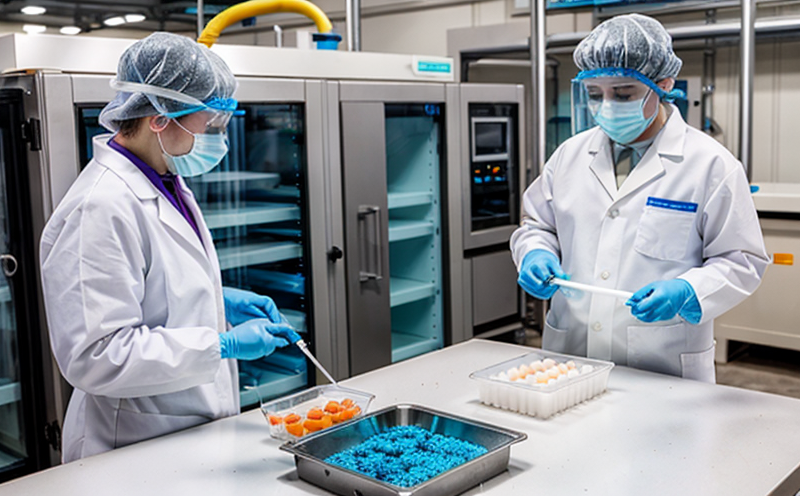ISO 16212 Yeast and Mold Testing for Soft Toy Fabrics
The ISO 16212 standard specifies procedures for detecting yeast and mold contamination in soft toy fabrics. This testing is crucial for ensuring that toys meet regulatory standards, safeguarding children's health, and maintaining brand reputation. Regulatory compliance is paramount in the toy industry, where even minor lapses can lead to product recalls or damage consumer trust.
The test procedure outlined in ISO 16212 involves several key steps. Specimens of soft toy fabrics are first prepared according to prescribed methods. These preparations aim to simulate real-world conditions and ensure accurate results. The specimens are then incubated under controlled conditions, which allow for the growth and detection of any yeast or mold present. Once incubation is complete, the samples undergo microscopic examination to identify specific fungal species.
Microbiological safety testing ensures that toys do not pose a risk to children's health. This includes preventing allergic reactions, skin irritations, and other potential health hazards associated with mold and yeast contamination. Soft toy fabrics are particularly vulnerable due to their prolonged contact with skin during playtime.
The significance of this test cannot be overstated. Compliance with ISO 16212 helps manufacturers meet legal requirements set by regulatory bodies such as the Consumer Product Safety Commission (CPSC) in the United States and similar organizations worldwide. In addition to ensuring safety, these tests contribute to brand reputation and customer trust.
For toy companies, compliance with ISO standards is not just a legal requirement but also an opportunity for differentiation in the marketplace. By demonstrating commitment to quality and safety through rigorous testing protocols like ISO 16212, brands can build stronger relationships with consumers and retailers.
In summary, ISO 16212 yeast and mold testing is essential for ensuring microbial safety in soft toy fabrics. It plays a critical role in safeguarding children's health while upholding the highest standards of quality assurance.
Benefits
- Legal Compliance: Ensures adherence to international safety standards, such as ISO 16212 and CPSC regulations.
- Health Protection: Guarantees that toys do not contain harmful molds or yeasts that could cause allergic reactions or skin irritations.
- Risk Mitigation: Minimizes the risk of product recalls, legal actions, and damage to brand reputation.
- Consumer Trust: Enhances consumer confidence in the safety and quality of toy products.
International Acceptance and Recognition
- The ISO 16212 standard is widely accepted by regulatory bodies across the globe, ensuring uniformity in testing procedures.
- This standard is recognized in major markets like Europe (EN 71-3), North America (CPSC regulations), and Asia-Pacific regions.
Environmental and Sustainability Contributions
By ensuring that soft toy fabrics are free from yeast and mold, ISO 16212 testing supports sustainable practices. This helps in reducing the environmental impact by preventing the spread of fungi and maintaining fabric integrity over time. Moreover, compliance with such standards encourages the use of eco-friendly materials and production processes.
The testing process also highlights the importance of regular quality checks throughout the supply chain. This ensures that all components used in toy manufacturing meet stringent safety criteria, ultimately contributing to a more sustainable industry.





